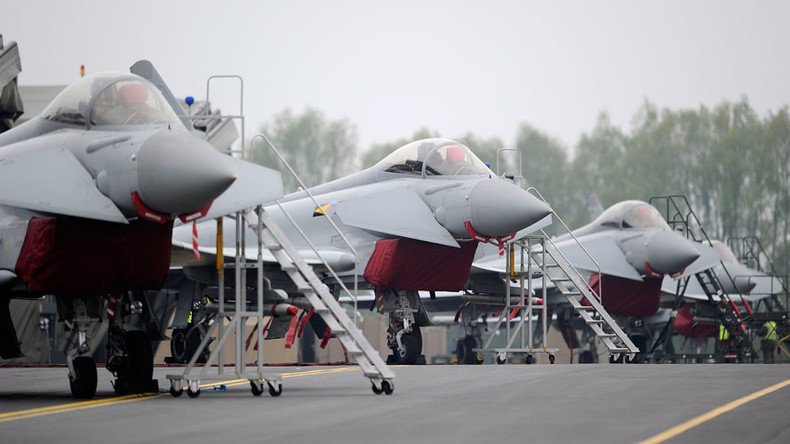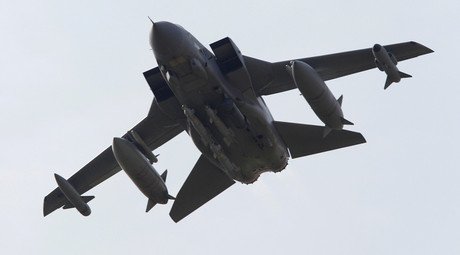'Public are the enemy’ of British foreign policy – expert

UK foreign policy strategists consider the British public to be their enemy and, thus, bombard it with lie upon lie about the UK’s secretive antics around the world, a renowned author and scholar has claimed.
Writing for the Huffington Post on Monday, historian and foreign policy expert Mark Curtis laid out what he claims is the truth behind British foreign policy in the Middle East.
“British wars abroad have two enemies. First, the official enemy, portrayed as a monster whom we always battle with noble intentions. But second is the enemy within – us, the public,” he argues in an article titled “We Know about the Lies over Iraq but What about Syria?”
The public, he claims, present a serious risk to continued British tinkering in the Middle East and so it is “subject to state ‘information operations’ to convey messages and obscure facts, usually via compliant media organisations.”
He says current UK policy in strife-torn Syria is being conducted using lies that rival those peddled by ministers at the time of the 2003 invasion of Iraq.
One example Curtis cites as an example of the UK’s deceptive tactics is the military’s contribution to Syrian rebel groups.
“The Ministry of Defence is hiring contractors to produce videos, photos, radio broadcasts and social media posts branded with the logos of rebel groups, to ‘effectively run a press office for opposition fighters.’ Materials are being circulated in the Arabic broadcast media and posted online with no indication of British government involvement,” he says.
He adds to this a long history of what he terms as “simply lying to parliament and the public” in order to carry out operations in Syria.
One example of this was when Defence Minister Earl Howe claimed in July of 2015 that parliamentary approval would be sought to extend bombing into Syria when, in fact, Britain had already been doing so by embedding UK pilots with foreign militaries for some time.
In Curtis’ view, the policy of deceiving the public was confirmed when the government subsequently argued: “Ministers authorise the embedding of UK personnel on deployment with host forces. It has been long-standing practice not to announce such deployments.”
Among other issues, Curtis also questioned the UK’s commitment to a negotiating a ceasefire in Syria.
Although the UK has publicly backed a UN-brokered truce, its actions tell a different story, he said.
“As prominent analyst Avi Shlaim has documented, Western insistence that Syrian president Assad must first step down sabotaged first Kofi Annan’s and then Lakhdar Brahimi’s UN efforts to set up a peace deal,” Curtis argues. “It strongly appears as if Britain wants neither side to win or lose.”
“So Britain is playing with fire, seeing the people of region as it always has – as expendable unpeople in its geopolitical games,” Curtis warned.













